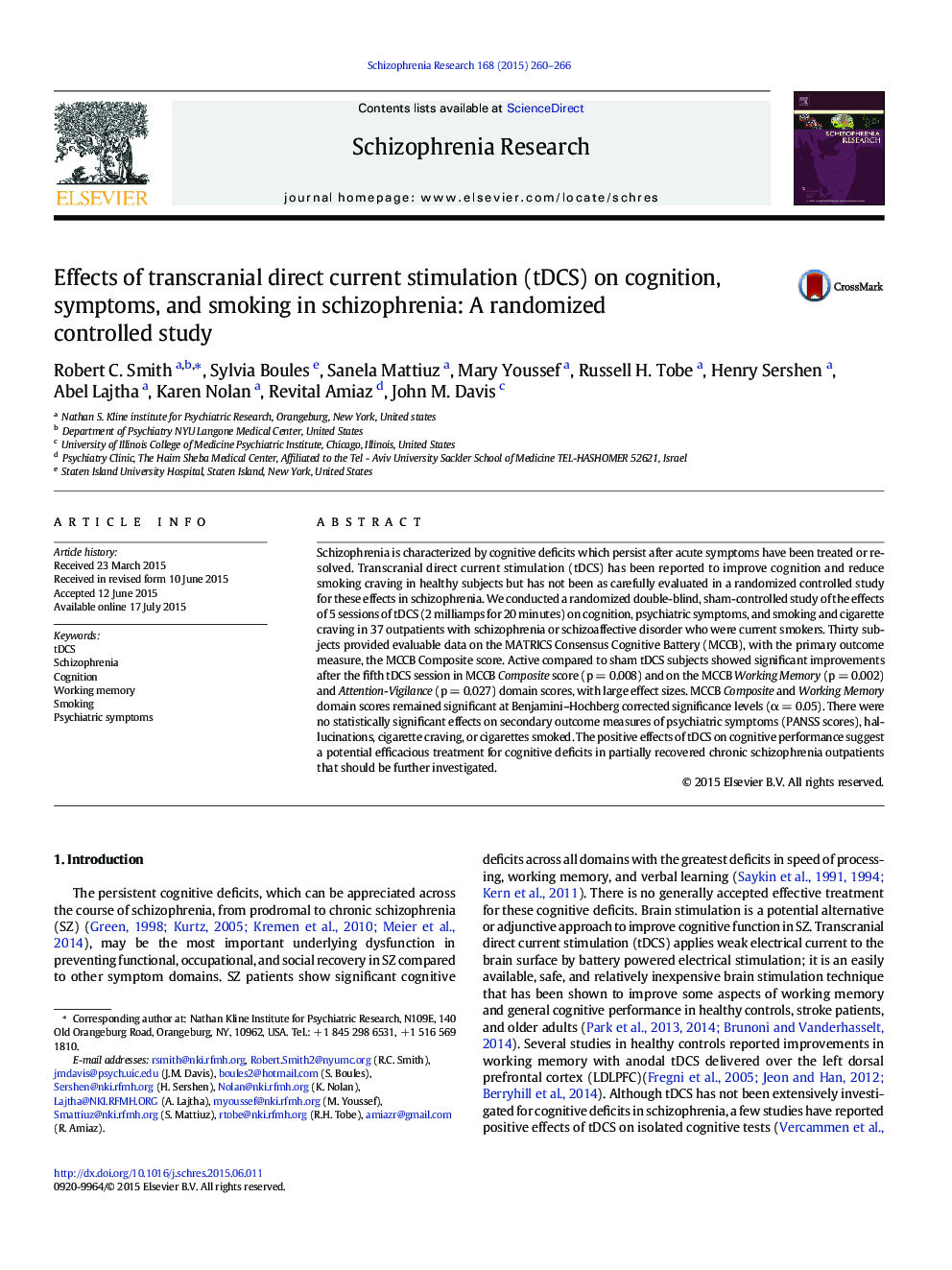| Article ID | Journal | Published Year | Pages | File Type |
|---|---|---|---|---|
| 6823712 | Schizophrenia Research | 2015 | 7 Pages |
Abstract
Schizophrenia is characterized by cognitive deficits which persist after acute symptoms have been treated or resolved. Transcranial direct current stimulation (tDCS) has been reported to improve cognition and reduce smoking craving in healthy subjects but has not been as carefully evaluated in a randomized controlled study for these effects in schizophrenia. We conducted a randomized double-blind, sham-controlled study of the effects of 5 sessions of tDCS (2 milliamps for 20 minutes) on cognition, psychiatric symptoms, and smoking and cigarette craving in 37 outpatients with schizophrenia or schizoaffective disorder who were current smokers. Thirty subjects provided evaluable data on the MATRICS Consensus Cognitive Battery (MCCB), with the primary outcome measure, the MCCB Composite score. Active compared to sham tDCS subjects showed significant improvements after the fifth tDCS session in MCCB Composite score (p = 0.008) and on the MCCB Working Memory (p = 0.002) and Attention-Vigilance (p = 0.027) domain scores, with large effect sizes. MCCB Composite and Working Memory domain scores remained significant at Benjamini-Hochberg corrected significance levels (α = 0.05). There were no statistically significant effects on secondary outcome measures of psychiatric symptoms (PANSS scores), hallucinations, cigarette craving, or cigarettes smoked. The positive effects of tDCS on cognitive performance suggest a potential efficacious treatment for cognitive deficits in partially recovered chronic schizophrenia outpatients that should be further investigated.
Related Topics
Life Sciences
Neuroscience
Behavioral Neuroscience
Authors
Robert C. Smith, Sylvia Boules, Sanela Mattiuz, Mary Youssef, Russell H. Tobe, Henry Sershen, Abel Lajtha, Karen Nolan, Revital Amiaz, John M. Davis,
